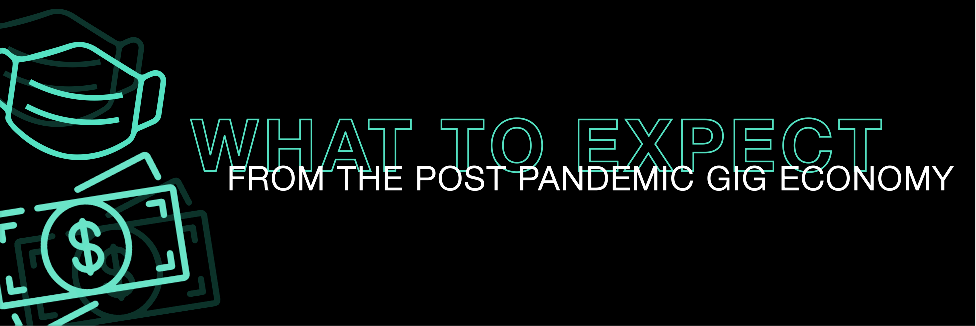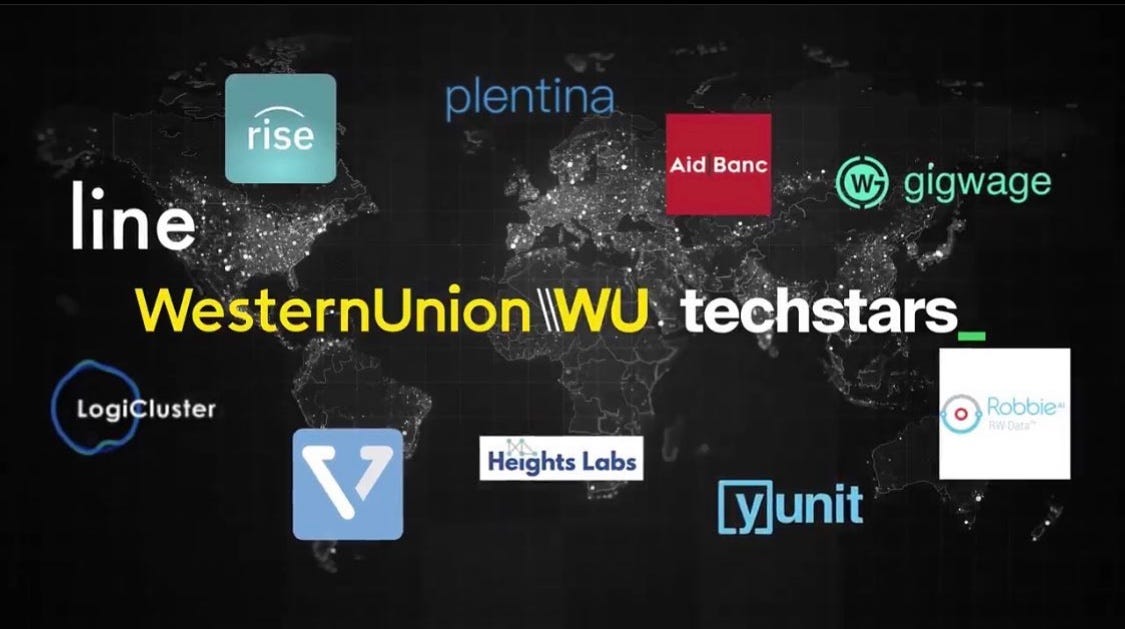What to Expect from the Post-Pandemic Gig Economy
 As more people receive the vaccine and the world slowly returns to “normal”, the COVID-19 pandemic seems like a fever dream. After a year of working from home, many Americans have now adapted to the flexibility of remote work and are preferring hybrid work options moving forward. The pandemic has transformed the modern workplace leaving outlasting trends in remote work and the gig economy. For those who were furloughed or laid off due to the pandemic, joining the gig economy has allowed them to quickly rebound. While others have completely abandoned their traditional 9–5’s for remote work in need of flexibility and independence in their careers.
As more people receive the vaccine and the world slowly returns to “normal”, the COVID-19 pandemic seems like a fever dream. After a year of working from home, many Americans have now adapted to the flexibility of remote work and are preferring hybrid work options moving forward. The pandemic has transformed the modern workplace leaving outlasting trends in remote work and the gig economy. For those who were furloughed or laid off due to the pandemic, joining the gig economy has allowed them to quickly rebound. While others have completely abandoned their traditional 9–5’s for remote work in need of flexibility and independence in their careers.
The pandemic has not only transformed the modern workplace but changed the way we think about what creates a productive work environment. Many predict the future of work will show a tremendous shift in favor of the gig economy as more people and businesses understand the benefits of contractors and increasingly rely on the independent workforce.
The Gig Economy is Thriving
Even prior to COVID-19, people were beginning to participate in the gig economy due to its versatility and ease. However, now more than ever, people are looking for fast and efficient ways to bring in money on their own time. Upwork found that 36% of the American workforce has been freelancing during the pandemic- an increase of 2 million over 2019. With the gig economy presenting some of the most viable options for job flexibility, more and more people are looking to become a part of the independent workforce full-time.
Not only is interest in becoming a gig worker growing, but the demand of the gig economy has exponentially increased due to the pandemic. We, as humans, prioritize leisure and want to make our lives as easy as possible. Max Baumann, Founder & CEO of Basemakers sees “finding a way to outsource household chores or administrative tasks will continue to be an area of growth in the gig economy.” Here at Gig Wage, we work with a number of companies that provide services that help make your life easier. Thinking about getting dinner delivered? Check out Orange Crate. Save the environment one grocery trip at a time and get your groceries delivered with absolutely no waste using Zero Grocery. Make sure you get your medication on time by getting it delivered through Rx Delivered Now.
Whether you’re a consumer or business, many are enjoying the benefits of a flexible and efficient gig economy. There’s no doubt that the pandemic accelerated the growth of the gig economy, and as this industry continues to expand, it’s inevitable that everyone will begin relying more on the gig-based workforce.
Increased Support for Gig Workers
As the pandemic paved the way for a more blended workforce, utilizing both 1099 and W2 employees. Companies will be expected to protect them the same way W2 employees are supported, with benefits to help ensure financial security and independence. Cynthia Salarizadeh, Founder & President of House of Saka, Inc. thinks “the next big step for the gig economy will be unionizing for stable pay and healthcare. As these new employment structures come to be and the new generations work out what works for them, we will continue to see a need for healthcare and financial protections.” As new generations enter the workforce, we can expect those in the gig economy to advocate for more stable pay and healthcare options similar to traditional workers.
COVID-19 has also forced many companies to reconsider their talent management strategies and how they can incorporate those strategies for their independent workforce. However, this called attention to the lack of resources gig workers have for education and career development. Companies are now increasing their efforts to equip their contractors with the proper skills and tools in order to further develop and diversify their workforce. In return, employers may request for workers with a more advanced skill set depending on the job. With an increased demand toward gig work, organizations will be held to a higher standard helping not only current gig workers, but also the infrastructure of the gig economy as a whole.
Diversification of the Gig Economy Workforce
Similar to other growing industries, diversity is equally as important in the gig economy as it is in the traditional workforce. The great part about the gig economy is that anyone can participate. Whether it’s boomers wanting to push back their retirement date to make extra money or Gen Z college students looking for supplemental cash flow, we can expect people from all ages to look toward the gig economy for an alternative source of income.
This will not only benefit the businesses who hired those workers, but it will attract top talent from the incoming workforce. In Deloitte’s Millennial Survey 2018, “the younger generation has a strong desire for improved work-life balance, which has led them to seek employers that provide the freedom to fit work in their lives, rather than the other way around.” Companies will want to follow the culture of the gig economy and introduce remote working options to stay competitive and attract diverse, young talent. Gig Wage is intentionally pursuing diversity of all kinds in our growth, and we intend to lead by example on setting the bar high. Check out our article here on How the Right DEI Initiatives Can FUEL Your Business. As the independent workforce diversifies, opportunities for all participants whether you’re a gig worker, a business that hires contractors, or a consumer become endless paving the way for growth and progression for the gig economy.
Remote work and a flourishing gig economy are just some of the trends that will outlive the pandemic. As more people participate and utilize the gig economy, there will be more job opportunities, benefits, and diversity on the horizon. If you have been thinking of joining the gig economy the time is now.
Written by
Erin Lee



